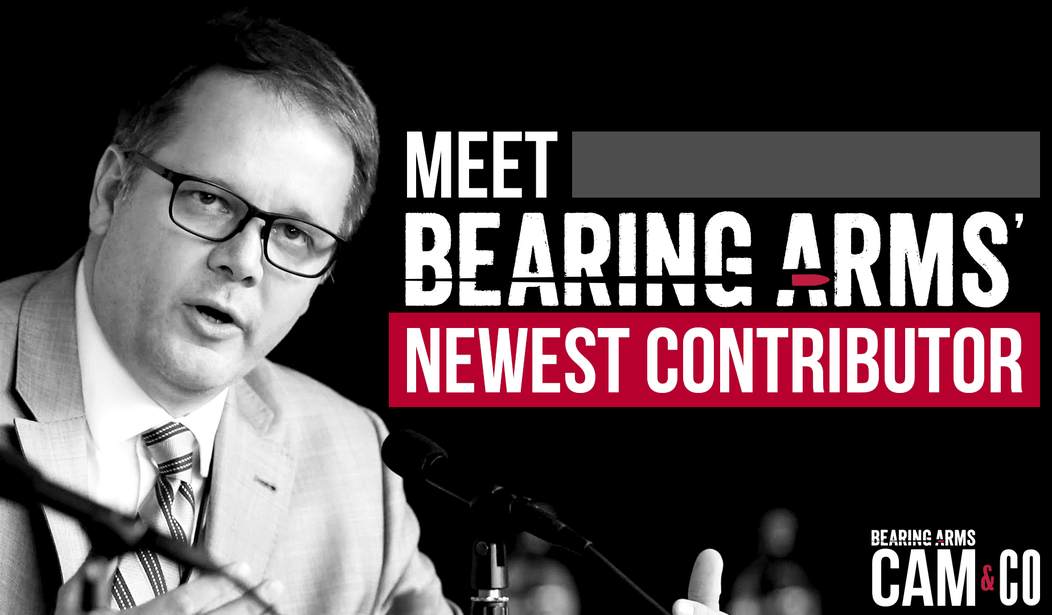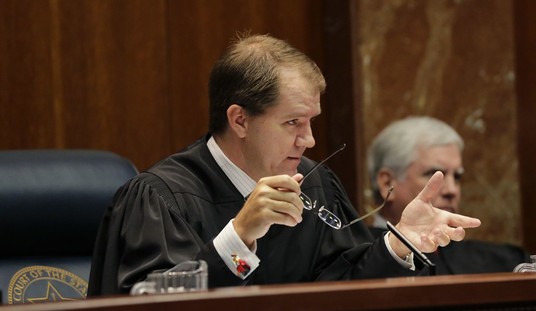If you’re a regular viewer or listener of Cam & Co, you’ve seen and heard Ryan Petty on the program on a semi-regular basis over the past few years. Now Petty, whose daughter Alaina was murdered at Marjory Stoneman Douglas High School in Parkland, Florida in 2018, is stepping up his student safety and pro-2A activism by joining the ranks of Bearing Arms’ contributors, and I’m thrilled that Ryan joined me on today’s show so we could talk more about what led him to take this step and what he hopes to focus on going forward.
As Ryan has detailed on a previous Cam & Co, he and his daughter loved to go shooting together, but after her murder he thought long and hard about whether any gun control measures could have prevented her death, ultimately concluding that they would not. Instead, he’s heavily involved in promoting school safety measures that he believes can make a difference, as well as pushing back against the all-too-prevalent idea that restricting the right to keep and bear arms is the only “reasonable” response to the actions of a cowardly killer intent on taking as many innocent lives as possible.
In fact, Ryan isn’t just a gun owner. He’s now a federal firearms licensee, and I’m looking forward to hearing his perspective as a small business owner in the firearms industry as well. If you haven’t had a chance to read Ryan’s first piece for Bearing Arms, be sure to check it out, because he does an excellent job of explaining the end game of the anti-gun groups when it comes to their lobbying credit card companies to start tracking purchases at gun stores.
This move to create a specific merchant code for firearms retailers has been underway for several years. Similar actions by Amalgamated failed last year. So what changed? Well, for one thing, anti-gun politicians and activists learned the lessons of using the private sector to do what government is not able to do directly. During the COVID-19 pandemic, government agencies turned to social media companies to enforce what amounted to censorship of anything they deemed to be disinformation. And many in the private sector were more than happy to comply.
By enlisting the private sector to do what the government can’t, gun control activists hope to achieve more than flagging suspicious purchases or building a private gun registry. First, they want to make purchasing a firearm more difficult. By attacking credit card purchases, they hope to force purchases to an all-cash basis which they believe will delay consumer purchases and systematically hurt small firearms retailers who depend on credit card purchases for as much as 80% of their business–forcing many to close their doors. Second, and this is their primary aim–convince activist investors and funds, steeped in environmental, social, and governance (ESG) to pressure banks, credit card processors, and the credit card networks themselves to stop doing business with firearms retailers. What ESG offers gun control activists and their allies in government is a golden opportunity to drive their social policy objectives–bypassing much of the public policy debate that would accompany legislation or regulatory action.
While the gun control lobby is still very much invested in getting their way through the legislative, executive, and judicial branch, they’re also working hard in the court of public (and corporate) opinion to denormalize gun ownership; to make it both culturally taboo and socially unacceptable to voice any support for the right to keep and bear arms… much less to exercise that right personally.
I’m glad that Ryan Petty is using his voice and this platform to push back against those efforts, and I’m really looking forward to reading what he has to say going forward. We need more voices like Ryan’s in the public square; not only defending our freedoms but fighting for those policies that really can make an impact on public safety and the security of our schools.









Join the conversation as a VIP Member